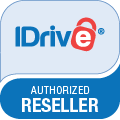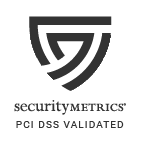In the battle against cyber threats, your company’s inbox is the digital frontline. Free email options like Gmail, Yahoo, or Outlook may be tempting for their cost-effectiveness, but they carry inherent risks that make them unsuitable for protecting your business. Paid business email services offer distinct advantages in a cybersecurity landscape where attacks are escalating in frequency and sophistication.
Here are three reasons why relying on free email endangers your business and examples of recent trends in email-related threats:
1. Targeted Spear Phishing: The Precision Threat
Free email accounts lack the advanced spam filtering and threat detection found in many paid business email solutions. Spearphishing attacks, where emails are carefully crafted to impersonate your clients, executives, or suppliers, are harder to stop. These aren’t generic mass emails; they’re specifically designed for your company. A business email platform with AI-powered filtering and threat analysis offers a crucial extra layer of defense.
2. Data Exposure: The Gateway to Wider Damage
Businesses often store and transmit sensitive information through email—client lists, financial details, or contracts. The weaker security and privacy controls of free email make sensitive data leaks more likely. An initial breach could give attackers valuable information to pivot into a devastating ransomware attack against the business itself or even exploit client relationships for broader fraud. Free email becomes the doorway to further attacks due to inadequate security features.
3. Business Compliance and Reputation: Email Isn’t Optional
Depending on your industry, there may be regulatory data protection standards (like HIPAA with medical information) that free email providers haven’t been designed to meet. Paid business email often features encryption, access controls, and audit trails required to demonstrate compliance. If a breach occurs, the ability to prove you took reasonable security precautions makes a huge difference in avoiding hefty fines. Moreover, an email address with your company’s own domain conveys professionalism, a subtle but powerful factor in maintaining client trust.
4. You are the product, and so are your emails.
These platforms don’t operate purely on generosity. They scan your inbox, analyze your conversations, and track your contacts to build targeted advertising profiles. This exposes sensitive business information, potentially including client data, trade secrets, and your internal communications. By opting for free email, you essentially accept an invisible third party at every business meeting and within every client exchange.
5. Downtime can cost more than a paid email.
Free email platform outages, or even worse, account takeovers, might cause you to lose important notifications, confidential customer information, and even the ability to retrieve your account in the event that hackers target you at that vulnerable moment. These platforms frequently lack reliable backup solutions and the prompt customer service required in an emergency, which can transform a brief outage into a potential data breach that could damage your company’s reputation over time.
Making the investment: Don’t risk your business and clients.
Selecting paid business email is an investment in your company’s security and resiliency, not just a financial burden. Stronger security, compliance, and data protection provide a greater level of peace of mind than the risks associated with free email services.



